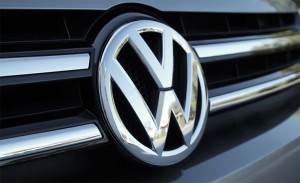Just as Volkswagen AG appears to be in the final stages of settling its diesel-emissions scandal in the U.S., the automaker is facing a load of trouble in its home country.
A panel of three judges in the German city of Hildesheim ruled that the automaker must take back a Skoda Yeti with the 2.0-liter TDI engine purchased in 2013 and pay the owner more than $28,000 for it.
Suggesting the emission scandal was a scam and comparing it to another recent high-profile event in which horse meat was used in lasagna, the court said, “VW intentionally committed fraud and can’t defend itself by saying it hasn’t clarified who was responsible for software that allowed the vehicle to cheat on emissions tests,” according to Bloomberg.
However, Volkswagen is planning to appeal the decision. Nicolai Laude, a VW spokesman, told the Associated Press the company expects the verdict by the court in Hildesheim in northern Germany to be overturned. Volkswagen noted that other courts had reached opposite decisions in previous cases.
(U.S., Euro investigators casting wider net for diesel emissions cheating. For more, Click Here.)
Despite rulings from other courts suggesting otherwise, there have been a few rulings to support the panel’s decision. In fact, it was the second this month from a German court, suggesting that a flurry of lawsuits by owners could be coming.
The judges’ statement used harsh language rarely found in court press releases, with underlined sentences like “illegal manipulation of engine control” and “illicit deviation of pertinent rules,” according to Bloomberg.
The Hildesheim-based judges agreed with a different interpretation of the law, that relies on civil tort law rather than contract laws. The tort law allows individuals to sue VW rather than having all of the similar complaints culled into one or a few small lawsuits.
The company reached a $4.3 billion settlement with U.S. authorities in the diesel scandal last week. VW admitted to using false statements to import cars to the U.S. and obstructing investigations when authorities grew suspicious of the emissions levels from the diesel engines as part of the deal.
Additionally, as part of $14.3 billion settlement Volkswagen agreed to buy back up to 500,000 cars in the U.S. Justice Department officials are now focusing on the officials involved in the scam. They’ve filed criminal charges against seven Volkswagen employees, one of whom has already pleaded guilty. Some 11 million cars worldwide have the deceptive software, 2.6 million of them in Germany.
Early on in the scandal, it was suggested that other companies may have cheated on the emissions testing as well. After plenty of denials early on, a few makers like Fiat Chrysler and Renault are clearly in the crosshairs of officials in the U.S and France.
(Senior VW managers warned to stay away from U.S. due to diesel scandal. For more, Click Here.)
Officials at the Environmental Protection Agency accused Fiat Chrysler of also using software to beat diesel emissions tests. The charge was flatly denied by the automaker. Conversely, in Europe, British authorities are in the midst of a similar investigation of FCA while French authorities are looking into similar claims about Renault, according to Reuters.
Thus far, only VW has been found guilty of any wrongdoing.
However, some of the queries have found that some automakers may have found a method for improving their results. Officials in Britain and Germany claim automakers have made extensive use of a “thermal window” which allows manufacturers to turn down pollution-control systems for the sake of protecting an engine, Reuters reports.
By turning off or throttling back emissions treatment systems in cold weather, they cut down the risk of condensation building up in catalytic converters, which can cause rust and reduce exhaust-filtering effectiveness in the long run.
(To see more about Fiat Chrysler being accused of rigging diesel tests, Click Here.)
However, it also improves engine performance and stretches the intervals between refilling vehicles with urea, an expensive substance needed to extract NOx from exhaust fumes.

